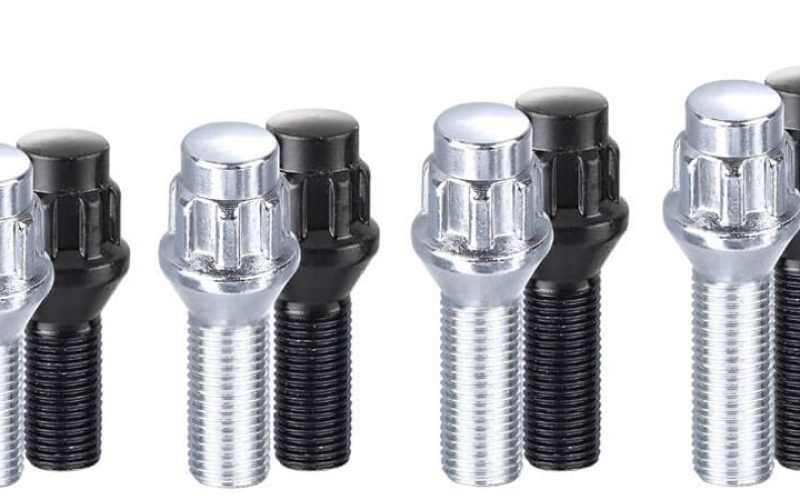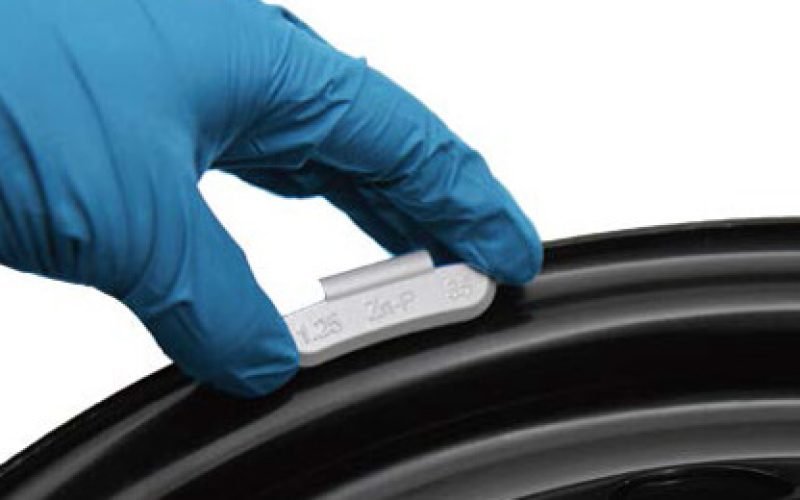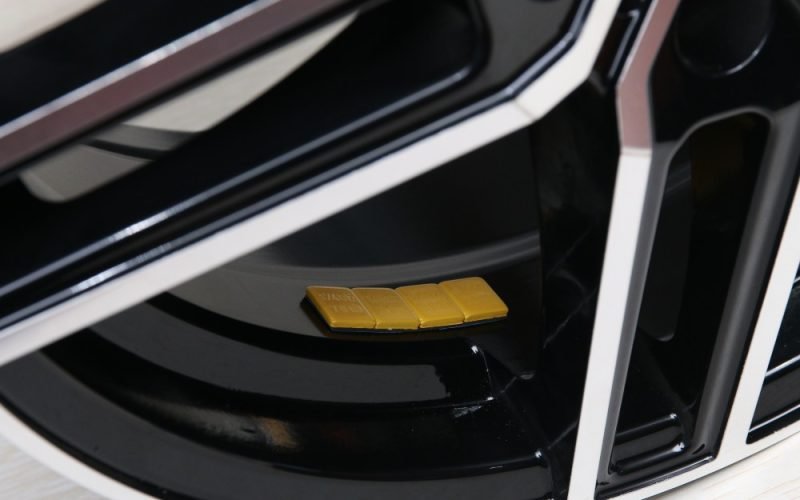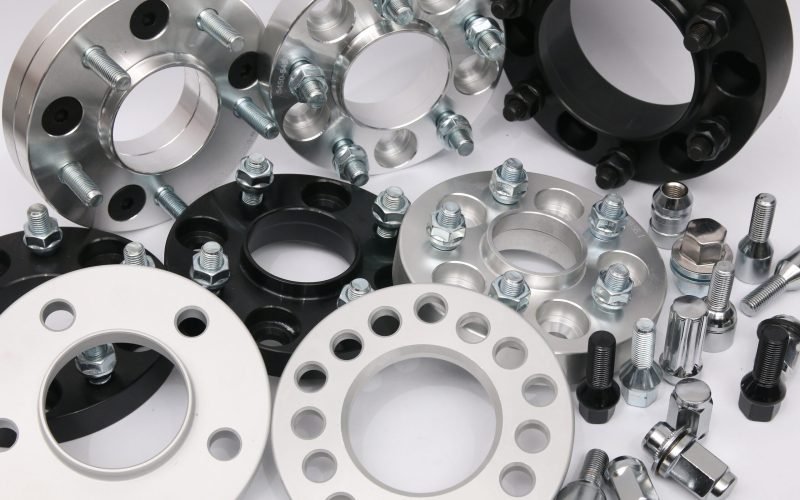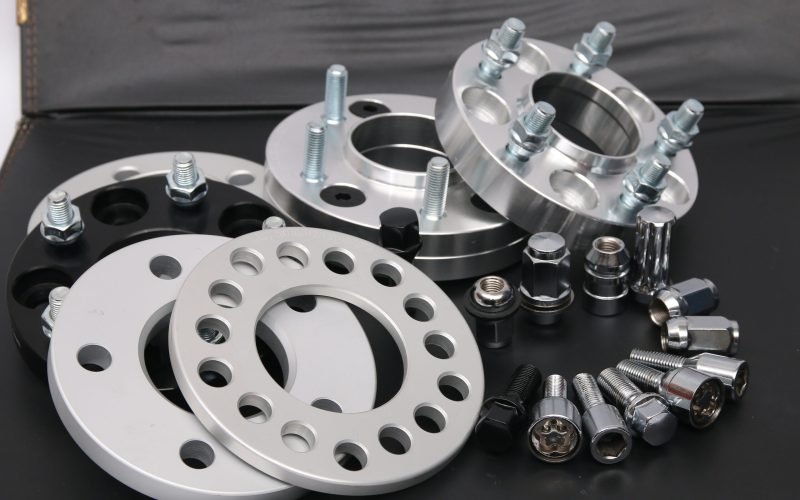

admin1
August 9, 2025
TPMS valve caps buying guide for Chevrolet, Ford, and GM owners

You want your Chevrolet, Ford, or GM to stay safe on the road, so paying attention to tpms valve caps matters. These small parts help protect your tire sensors from road debris, corrosion, and air leaks. Common problems like dead batteries, damaged sensors from potholes, or loose valve stems can cause warning lights or sensor failure. By choosing quality tpms valve caps, you help prevent these issues and keep your tire pressure readings accurate.
TPMS valve caps Quick Comparison Table
When you shop for valve caps, you want to know what fits your car and your budget. Here’s a quick look at the options for Chevrolet, Ford, and GM. This table shows you the price range, product types, and some notes to help you decide.
| Brand | Product Type | Price Range / Specific Price | Notes |
|---|---|---|---|
| Chevrolet | TPMS Valve Caps | From $1.99 | You can buy individual valve caps for as low as $1.99. |
| Chevrolet | TPMS Sensors | $22.98 – $24.98 | Sensors come with detailed pricing. |
| GM | ACDelco Tire Valve Stems | From $19.99 | These include valve caps and are OE parts designed by GM. |
| Ford | Valve Caps | N/A | Ford sells valve caps mostly in multi-packs, not as singles. |
| Chevrolet, Ford, GM | 50-pack Gray Long TPMS Valve Stem Caps | $10.68 | Bulk packs work for all three brands and save money if you need extras. |
| GM, Ford, Chevrolet | Clamp-In TPMS Valve Stem Assemblies | $13.49 – $29.99 | You can pick from different finishes and sizes. The nickel-plated stem costs the most. |
Chevrolet Recommended TPMS Valve Caps
If you drive a Chevrolet, you have lots of choices. You can grab individual valve caps for as little as $1.99. That’s great if you just need one or two. If you want to stock up, you can get a 50-pack of gray long valve stem caps for $10.68. These work well if you lose caps often or want to keep spares in your glove box. Chevrolet also offers sensors with clear pricing, so you always know what you’re paying for.
Ford Recommended TPMS Valve Caps
Ford owners usually find valve caps in multi-packs. You won’t see single cap prices as often, but the bulk packs are handy if you have more than one Ford or help friends and family. The 50-pack gray long valve stem caps also fit Ford models, so you can save money by buying in bulk. If you want something fancier, you can look at clamp-in valve stem assemblies, which come in different finishes and prices.
GM Recommended TPMS Valve Caps
GM drivers can choose ACDelco tire valve stems that start at $19.99. These include the valve caps and are made to fit GM vehicles perfectly. If you want more options, you can check out clamp-in valve stem assemblies. These range from $13.49 for metal chrome to $29.99 for nickel-plated stems. The bulk 50-pack is also a smart pick for GM owners who want to keep extras on hand and protect their sensors from rust and corrosion.
Tip: Buying in bulk can save you money and make sure you always have a spare valve cap when you need it.
Key Features to Look For in TPMS valve caps
Compatibility with Chevrolet, Ford, and GM TPMS Sensors
When you shop for tpms valve caps, you want to make sure they fit your vehicle’s sensors. Chevrolet, Ford, and GM use different sensor designs and sizes. Some sensors have metal stems, while others use rubber. If you pick the wrong cap, it might not screw on tightly or could even damage the sensor. You might also run into problems with signal strength or pairing if the cap isn’t made for your brand.
Here are some common compatibility issues you might face:
- Some Chevrolet, Ford, and GM sensors do not pair well with aftermarket caps because of frequency differences.
- The physical size of the valve stem can be different. For example, GM sensors often fit .453 inch rim holes, but some trailer wheels use .625 inch holes. You may need special adapters or stems.
- Ford sensors sometimes need larger diameter stems, so you have to check the size before buying.
- If the sensor is too far from the vehicle’s receiver, you might lose the signal. GM recommends keeping sensors within 23 feet of the receiver.
Tip: Always check your vehicle’s model, year, and sensor type before buying new valve caps. If you’re not sure, ask your dealer or look in your owner’s manual.
Material Quality and Durability
The material of your valve caps matters a lot. You want something that lasts and protects your sensors. Most valve caps come in rubber or metal. Metal caps, like those used in Bosch TPMS sensors for Chevrolet Silverado 1500 and Ford F150, offer better durability and match well with steel or aluminum wheels. Rubber caps are common, but they can wear out faster, especially in tough weather.
- Metal valve caps usually last longer and handle bumps, heat, and cold better than rubber ones.
- Durable materials help your sensors work longer and keep your tires safe.
- Many OEM-quality valve caps, especially metal ones, come with warranties. Some even have a 2-year factory warranty, showing the maker trusts their quality.
| Aspect | Details |
|---|---|
| Average Lifespan of TPMS Sensors | 5 to 12 years, with an average around 7 years |
| Factors Influencing Lifespan | Driving habits, weather, and how often the sensor sends signals |
| Battery Replacement | The battery is built in. When it dies, you replace the whole sensor, valve, and cap. |
| Applicability | Chevrolet, Ford, and GM vehicles use similar OEM parts with these lifespan expectations |
If you want your tpms valve caps to last, pick ones made from strong materials. This helps you avoid frequent replacements and keeps your sensors working well.
Sealing and Weather Resistance
You need valve caps that seal tightly and keep out water, dirt, and road salt. A good seal stops air from leaking out of your tires and protects the sensor from rust or corrosion. Weather resistance is important, especially if you drive in places with lots of rain, snow, or extreme temperatures.
- Look for caps with rubber gaskets or O-rings inside. These help block out moisture and dust.
- Metal caps with proper sealing features work best in harsh weather.
- A tight-fitting cap keeps your tire pressure readings accurate and your sensors safe.
Note: If you see rust, cracks, or missing caps, replace them right away. This simple step can save you from bigger problems down the road.
Anti-Theft and Security Features
You might not think about someone stealing your valve caps, but it happens more often than you’d expect. Some people take them for fun, while others want to resell them. If you park your Chevrolet, Ford, or GM in public places, you want to keep your tpms valve caps safe.
Many brands now offer anti-theft features. These features help you keep your valve caps where they belong—on your wheels. Here are some ways manufacturers make valve caps harder to steal:
- Locking Mechanisms: Some valve caps come with a small locking screw or require a special tool to remove. This makes it tough for someone to take them off without the right tool.
- Unique Designs: You can find valve caps with special shapes or patterns. These designs make it hard to grip the cap with regular pliers or fingers.
- Tamper-Proof Materials: Strong metals like stainless steel or brass resist bending and breaking. Thieves can’t just twist them off by hand.
Tip: If you want extra security, look for valve caps that come with a matching key or wrench. Keep the tool in your glove box so you can remove the caps when you need to.
Here’s a quick table showing common anti-theft features and how they help:
| Feature | How It Protects Your Valve Caps |
|---|---|
| Locking screw | Needs a special tool to remove |
| Unique shape | Hard to grip with regular tools |
| Tamper-proof material | Resists force and damage |
| Keyed set | Only you have the tool to remove them |
You don’t have to worry about losing your valve caps or having your sensors exposed. Anti-theft features give you peace of mind, especially if you park in busy areas or leave your car outside overnight.
Ease of Installation
You want to spend less time in the driveway and more time on the road. That’s why easy installation matters when you pick valve caps for your Chevrolet, Ford, or GM. Most tpms valve caps screw on by hand, but some have extra steps for added security or sealing.
Here’s what you should look for:
- Hand-Tightening: Most valve caps twist on and off without tools. You just use your fingers. This makes it easy to check your tire pressure or swap out caps.
- Clear Instructions: Good brands include simple instructions in the package. You can follow the steps even if you’ve never changed a valve cap before.
- No Special Tools Needed: Unless you choose anti-theft caps, you won’t need wrenches or screwdrivers. This saves you time and hassle.
- Quick Fit: The right size cap fits snugly on your valve stem. You don’t have to force it or worry about cross-threading.
Note: Always check that the cap is tight, but don’t over-tighten. Too much force can damage the valve stem or the sensor inside.
If you pick valve caps with extra features, like locking screws, you might need a small tool. Most kits include everything you need. You just follow the steps, and you’re done in minutes.
A simple installation process means you can replace lost or damaged caps fast. You keep your sensors protected and your tires safe without a trip to the mechanic.
Top TPMS valve caps Picks Reviewed
Best Overall TPMS Valve Cap for Chevrolet
If you drive a Chevrolet, you want a valve cap that fits right, lasts long, and keeps your sensors safe. The best overall pick for Chevrolet owners is a metal valve cap with a rubber O-ring inside. This type of cap gives you a tight seal, so water and dirt stay out. You also get strong protection against rust and corrosion, which helps your sensors last longer.
You can install these caps by hand. You just twist them on until they feel snug. The rubber O-ring inside makes sure the cap stays in place, even if you drive on bumpy roads. Many Chevrolet drivers like these caps because they work well in hot summers and cold winters. You do not need any special tools or skills.
Tip: Keep a few extra valve caps in your glove box. If you lose one, you can replace it right away and keep your sensors protected.
Here’s why this pick stands out:
- Fits most Chevrolet models, including Silverado, Malibu, and Equinox.
- Made from durable metal that resists cracking and fading.
- Rubber O-ring keeps out moisture and dust.
- Easy to install by hand—no tools needed.
- Affordable price for a set, so you can replace all four at once.
If you want a simple, reliable choice for your Chevrolet, this valve cap covers all the basics and helps your TPMS sensors work their best.
Best Value TPMS Valve Cap for Ford
Ford owners often look for a good deal that does not cut corners on quality. The best value pick for Ford vehicles is a bulk pack of long gray valve stem caps. These caps give you a lot of extras, so you always have spares when you need them. You can use them on different Ford models, from the F-150 to the Escape.
These valve caps use tough plastic that stands up to sun, rain, and road salt. The long design makes them easy to grip, so you can twist them on and off without trouble. You do not need to worry about losing one, because you get plenty in the pack.
- Works with most Ford TPMS sensors and valve stems.
- Bulk packs save you money and give you extras for friends or family.
- Long shape makes them easy to handle, even with gloves on.
- Plastic material resists fading and cracking.
- Simple to install—just screw them on by hand.
Note: If you want to upgrade, you can find metal caps for Ford, but the bulk plastic pack gives you the best value for everyday use.
You get peace of mind knowing your sensors stay covered, and you do not have to spend a lot to keep your Ford in top shape.
Best Premium TPMS Valve Cap for GM
If you drive a GM vehicle and want the best, you should look for a premium valve cap that matches the quality of your car or truck. GM’s top valve caps stand out because they use advanced materials and strict testing. These caps are not just for looks—they help your sensors work better and last longer.
Here’s a table showing what makes these premium GM valve caps special:
| Feature Category | Description |
|---|---|
| OE Validation & Fit | Designed, engineered, and tested to GM’s high standards. Backed by General Motors as true OE parts. |
| Material Quality | Made with durable materials like chromed sleeves, anodized stems, and corrosion protection. |
| Compatibility | Fits GM brands like Chevrolet, Buick, GMC, and Cadillac. Supports multiple sensor frequencies. |
| Programmability | Sensors come blank and need programming with TPMS tools. Work just like original GM sensors. |
| Communication & Integration | Communicate perfectly with GM’s TPMS modules for accurate pressure updates. |
| Battery Life | Battery lasts up to 10 years under normal use. |
| Installation | Some caps use easy press-in stems. Professional installation is best, but some do not need special tools. |
| Innovation & Updates | GM updates designs to use new materials and support future OE systems. |
You get a valve cap that fits perfectly and keeps your sensors safe from water, salt, and dirt. The chromed finish looks sharp and resists rust. These caps also help your TPMS sensors send accurate pressure readings to your dashboard.
If you want the best for your GM vehicle, choose a premium cap that meets GM’s strict standards. You get long-lasting protection and peace of mind every time you drive.
These premium caps cost more, but you get top-notch quality, a perfect fit, and the latest technology. Your GM vehicle deserves nothing less.
Universal TPMS Valve Caps for All Three Brands
You might wonder if you can buy one type of valve cap for all your vehicles. Good news! Universal valve caps exist, and they work for Chevrolet, Ford, and GM models. These caps fit most standard valve stems, so you do not have to search for a brand-specific part every time you need a replacement.
Universal valve caps come in handy when you have more than one car at home. Maybe you drive a Chevrolet, but your partner has a Ford, and your teen drives a GM. Instead of buying different caps for each car, you can grab a pack of universal ones and cover everyone’s needs.
What Makes a Valve Cap Universal?
Universal valve caps use a standard thread size. Most cars in North America use a Schrader valve, which has a 0.305-inch diameter and 32 threads per inch. This size fits almost every Chevrolet, Ford, and GM vehicle. You do not need to measure or guess. Just screw the cap on, and you are set.
Here is a quick table to show you the main features of universal valve caps:
| Feature | Details |
|---|---|
| Thread Size | 0.305″ diameter, 32 TPI (Schrader standard) |
| Material Options | Plastic, aluminum, brass, stainless steel |
| Weather Resistance | Many include rubber O-rings for sealing |
| Color Choices | Black, silver, gray, chrome, and more |
| Pack Sizes | Singles, 4-packs, 10-packs, 50-packs |
Tip: If you want to save money, buy a larger pack. You will always have extras for emergencies or to share with friends.
Why Choose Universal Valve Caps?
You get flexibility and convenience. You do not have to worry about matching part numbers or checking your owner’s manual every time. Universal caps also make it easy to keep spares in your glove box, toolbox, or garage.
- You can use them on cars, trucks, SUVs, and even bikes.
- They protect your tire sensors from dirt, water, and road salt.
- Many universal caps come with extra features, like anti-theft designs or bright colors to help you spot missing caps.
Some universal caps use metal for extra strength. Others use tough plastic that resists cracking in the sun or cold. You can pick the style and material that fits your needs best.
Are Universal Valve Caps Reliable?
Yes, most universal valve caps work just as well as brand-specific ones. Manufacturers test them to make sure they seal tightly and do not interfere with your tire pressure sensors. If you pick a cap with a rubber gasket or O-ring, you get even better protection against leaks and corrosion.
Note: Always check that the cap screws on smoothly. If you feel resistance or it does not fit, stop and double-check the size. For most Chevrolet, Ford, and GM vehicles, universal caps fit perfectly.
When Should You Use Universal Valve Caps?
- You want a quick fix for a lost or broken cap.
- You have more than one vehicle brand at home.
- You like to keep spares on hand for emergencies.
- You want to save money by buying in bulk.
Universal valve caps make life easier. You do not have to stress about finding the right part. Just grab a pack, twist them on, and hit the road with confidence.
Ensuring Compatibility of TPMS valve caps
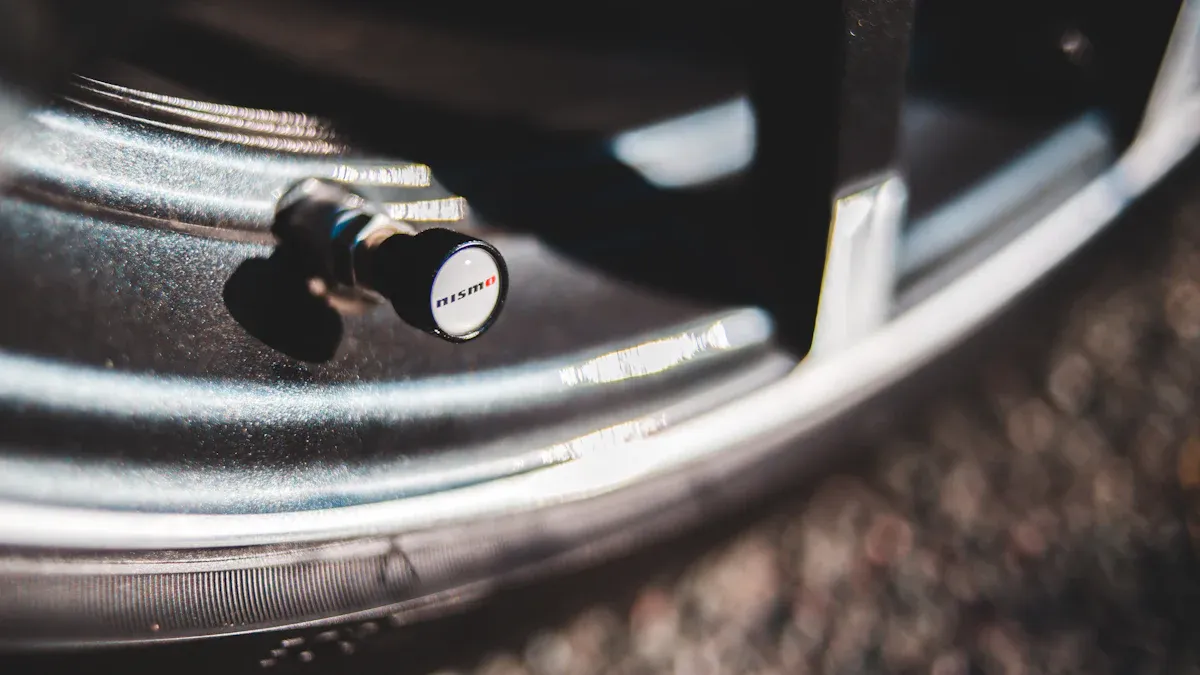
Checking Vehicle Model and Year
You want to make sure your new valve caps fit your car. Start by checking your vehicle’s model and year. Every car brand and model can have different parts, even if they look the same. For Chevrolet, Ford, and GM, you can find lists that show which valve caps fit each model. For example, a set of rubber valve stems might fit a Chevrolet Silverado 1500 from 2008 to 2016, a Ford F-150 from 2009 to 2016, or a GMC Sierra 1500 from 2008 to 2016. Always match your car’s year and model to the product listing before you buy.
Tip: If you’re not sure, look in your owner’s manual or ask your local dealership for help.
Identifying TPMS Sensor Types
Not all sensors look or work the same. Chevrolet and GM often use valve-mounted sensors. You can spot these by the metal valve stem with a small nut. Ford usually uses band-mounted sensors. These sensors sit on a metal band inside the rim, away from the valve stem. Older GM vehicles sometimes used sensorless systems, but you won’t see these on newer cars.
Here’s a quick table to help you spot the difference:
| Vehicle Manufacturer | TPMS Sensor Type | Description |
|---|---|---|
| Chevrolet & GM | Valve-mounted sensor | Sensor on the valve stem, metal stem with nut |
| Ford | Band-mounted sensor | Sensor on a metal band inside the rim, not on the valve stem |
| GM (older models) | Sensorless system | No physical sensor, uses rolling diameter (not common today) |
Knowing your sensor type helps you pick the right tpms valve caps and avoid problems.
Matching Valve Cap Threads and Sizes
Valve caps need to fit the threads and size of your valve stem. Most Chevrolet, Ford, and GM vehicles use a standard Schrader valve. This valve has a 0.305-inch diameter and 32 threads per inch. Some models use a snap-in TPMS valve stem that is 1.5 inches long and fits a 0.625-inch rim hole. Always check these numbers before you buy.
Here’s a simple checklist:
- Check the valve type (snap-in or clamp-in)
- Measure the valve stem length (usually 1.5 inches)
- Confirm the rim hole diameter (often 0.625 inches)
- Make sure the cap screws on smoothly
After you install new valve caps, use a TPMS relearn tool to reset the sensors. This tool helps your car’s system recognize the new caps and keeps your warning lights off.
Note: A good fit means your sensors work right and your tires stay safe.
TPMS valve caps Installation and Maintenance Tips

Step-by-Step Installation Guide
Putting on new valve caps is quick and easy. You do not need special tools. Just follow these steps:
- Park your car on a flat surface. Make sure the tires are cool.
- Find the valve stem on each tire. Remove the old cap by twisting it to the left.
- Check the valve stem for dirt or damage. Wipe it clean with a dry cloth.
- Take your new valve cap and line it up with the threads on the stem.
- Twist the cap to the right until it feels snug. Do not force it.
- Repeat for all four tires.
Tip: If your valve caps have a rubber O-ring, make sure it sits flat for a tight seal.
Cleaning and Maintenance Best Practices
Keeping your valve caps clean helps them last longer. Dirt and road salt can build up over time. This can cause the caps to stick or even damage the valve stem. Here’s how you can keep them in top shape:
- Wipe the caps and valve stems with a damp cloth every month.
- Use a soft brush to remove stubborn dirt.
- Dry the area before putting the caps back on.
- Check for cracks or rust during cleaning.
A little care goes a long way. Clean caps help protect your tire sensors and keep air from leaking out.
When to Replace TPMS Valve Caps
You should check your valve caps often. Replace them if you notice any of these signs:
| Sign | What It Means |
|---|---|
| Cracks or splits | The cap may not seal well |
| Rust or corrosion | Water can get inside |
| Loose fit | The cap could fall off |
| Missing O-ring | Less protection from leaks |
Note: Always replace missing or damaged caps right away. This keeps your sensors safe and your tires at the right pressure.
Where to Buy Genuine TPMS valve caps
Trusted Dealerships and Auto Parts Stores
You want to make sure you get the real deal when buying valve caps for your Chevrolet, Ford, or GM. Trusted dealerships and auto parts stores make this easy. These places stock original equipment (OE) parts and offer warranty coverage. You can walk in, ask questions, and get help from staff who know your vehicle.
- Advance Auto Parts carries ACDelco GM Original Equipment Tire Valve Stems and TPMS valve stem assemblies. These parts are tested and backed by General Motors.
- You’ll find brands like Dill Air Control and Xtra Seal at Advance Auto Parts. Dill Air Control leads in aftermarket TPMS replacement sensors and valve stems for GM and Ford. Xtra Seal offers TPMS rubber snap-in valves with chromed sleeves for GM vehicles.
- Tasca Parts is another reliable source. They sell genuine GM parts, including ACDelco TPMS valve stem caps. These come with manufacturer warranties and guaranteed fitment.
When you shop at these stores, you get peace of mind. You know the parts fit your car and meet strict standards.
Recommended Online Retailers
Shopping online gives you more choices and lets you compare prices. Some online retailers stand out for their reputation and product selection. You can find both OEM and aftermarket valve caps for Chevrolet, Ford, and GM models.
| Brand | Product Type | Vehicle Compatibility | Price Range | Retailer | Key Features |
|---|---|---|---|---|---|
| Xtra Seal | TPMS Rubber Snap-in Valve | GM (Chevrolet) | $4.99-$7.99 | Advance Auto Parts | Chromed sleeve, self-tapping screws, max 80 psi cold inflation pressure |
| Schrader | TPMS Sensor Service Kit | GM (Chevrolet) | From $3.49 | Advance Auto Parts | OE replacement parts, durable, tailored to vehicle, requires professional installation |
| Autel | Metal Press-in Valve Stems (4) | GM (Chevrolet) | From $11.49 | Advance Auto Parts | Interchangeable metal valves, corrosion protection, no tool installation |
| REDI-Sensor | Rubber Snap-in Stem with Metal Clip | GM (Chevrolet) | From $5.99 | Advance Auto Parts | OE validated, no tools needed for installation, professional installation recommended |
| ACDelco | Tire Pressure Sensor Kit | GM (Chevrolet) | From $19.99 | Advance Auto Parts | GM OE parts, engineered and tested to rigorous standards, backed by General Motors |
Advance Auto Parts stands out as a trusted online retailer. You get access to top brands, customer reviews, and reliable shipping. You can check product details and make sure you pick the right part for your vehicle.
Tips for Avoiding Counterfeit TPMS Valve Caps
Counterfeit valve caps can cause problems. They might not fit right or protect your sensors. You want to avoid these risks. Here are some tips to help you spot genuine products:
- Buy from authorized dealerships or well-known auto parts stores.
- Look for OE or OEM labels on the packaging.
- Check for manufacturer warranties and fitment guarantees.
- Read customer reviews before you buy online.
- Avoid deals that seem too good to be true.
Tip: Genuine valve caps come with clear branding and part numbers. If you’re unsure, ask the seller for proof of authenticity.
You protect your vehicle and your wallet when you choose trusted sources. Stick with reputable stores and brands for the best results.
When you pick the right valve caps for your Chevrolet, Ford, or GM, you help your sensors last longer and work better. High-quality caps, like those from trusted brands, use tough materials that handle heat, cold, and road debris. They fit your car perfectly and keep air from leaking out. Many experts recommend changing your valve caps with every tire change to keep your sensors safe. If you want the best results, ask a pro to install them for you.
FAQ
How often should you replace TPMS valve caps?
You should check your valve caps every time you check your tire pressure. Replace them if you see cracks, rust, or if one goes missing. Most drivers swap them out during regular tire changes or every couple of years.
Can you use regular valve caps on TPMS sensors?
No, you should not use regular valve caps on TPMS sensors. TPMS valve caps are designed to fit tightly and protect the sensor. Regular caps might not seal well or could damage the sensor threads.
What happens if you lose a TPMS valve cap?
If you lose a TPMS valve cap, dirt and water can get into the valve stem. This can cause air leaks or damage the sensor. Replace a missing cap as soon as possible to keep your tire pressure system working right.
Are metal or plastic TPMS valve caps better?
Metal valve caps last longer and protect better against weather and road salt. Plastic caps cost less and work fine for most drivers. If you want extra durability, choose metal. For everyday use, plastic works well.
Do TPMS valve caps affect tire pressure readings?
No, TPMS valve caps do not change your tire pressure readings. They help keep the sensor clean and dry. If the cap fits right, your TPMS will give you accurate numbers every time.
